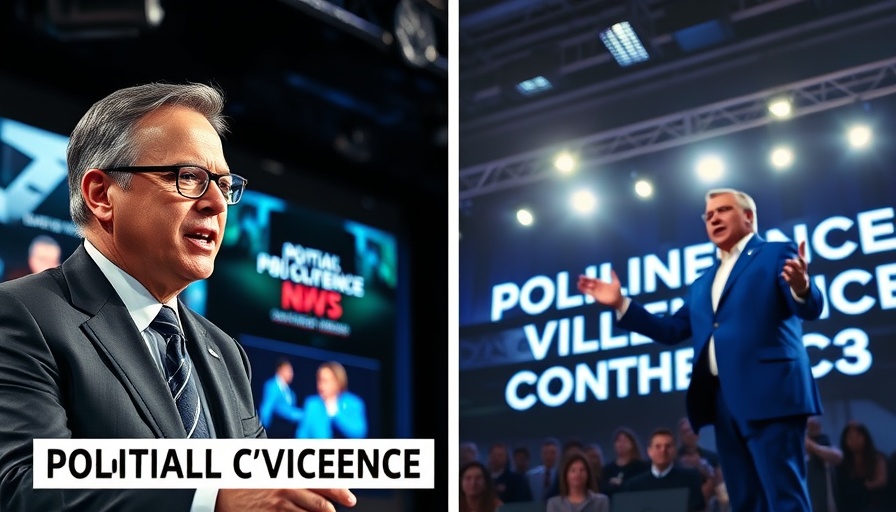
Political Violence: A Response to Unrest
In a recent statement that drew significant media attention, former President Donald Trump condemned political violence in America, urging supporters to refrain from violent actions. However, what many noted was Trump's omission to reference the alarming attacks targeted specifically at Democrats. This selective focus raised eyebrows, sparking discussions about the implications of political rhetoric in the current national climate.
Contextualizing Political Violence in America
Political violence is not new in the United States; it has a long and complex history that interacts with the power structures and societal divisions in the nation. From the violent protests during the Civil Rights Movement to more recent events like the January 6 Capitol riot, the patterns of violence often reflect the underlying tensions in American society. Trump's response, although phrased to promote peace, seemed to overlook a significant aspect of the current political landscape—attacks against those with opposing views.
The Nuanced Narrative of Attacks Against Democrats
Critics have pointed out that Trump's failure to mention these attacks appears to be a strategic choice, one that might suggest complicity or, at the very least, an avoidance of responsibility for the rhetoric that has fueled conflict. While many Americans are looking for unifying figures who actively promote de-escalation, failing to address violence against any group can leave communities feeling unheard and vulnerable. This selective acknowledgment could create further division among political factions, which is concerning given the current polarization.
The Social Impact of Omitted Messages
Trump's remarks pose important questions regarding the social responsibilities of leaders during such turbulent times. When political figures choose to denounce violence without delineating its direct targets or contexts, they can inadvertently promote a narrative that diminishes the experiences of those affected. This raises critical conversations about the wider societal impact of political statements and their potential to either hinder progress or foster more division.
Comparative Perspectives: Other Leaders’ Responses
Analyzing statements from various leaders can provide a more integrated view of how political violence is discussed across the spectrum. For instance, leaders from both parties have emphasized the need for comprehensive condemnation of violence in all forms, highlighting that focusing solely on one type can be disingenuous. By weaving in collective narratives, politicians build understanding and solidarity rather than fueling divisiveness, a crucial step for a healthier political environment.
The Future of Political Discourse: Trends and Predictions
As the nation approaches pivotal elections, understanding and addressing political violence will likely remain central. Political analysts predict that the focus on rhetoric, especially regarding violence, will intensify as leaders pivot to ensure their messages resonate with voters while promoting safety and unity. This situation presents an opportunity for all involved to rethink how they communicate about ideological differences and how they promote an unwavering stance against violence.
Engaging the Public: Shaping Ongoing Dialogue
Moving forward, public engagement in discussions about political violence and accountability is essential. Citizens must advocate for a narrative that addresses all forms of violence transparently and fairly, ensuring that leaders are held accountable for their words and actions. Opportunities for citizens to engage with local representatives through town halls and forums can lead to discussions emphasizing collective healing over division.
Conclusion: The Responsibility of Political Leaders
The importance of political leaders taking a comprehensive stance on violence cannot be overstated. As America grapples with these complex issues, clarity and a commitment to truth will be crucial in fostering a constructive dialogue. The onus lies on both leaders and citizens to champion a political discourse that elevates mutual respect and fundamentally rejects violence.
 Add Element
Add Element  Add Row
Add Row 



Write A Comment